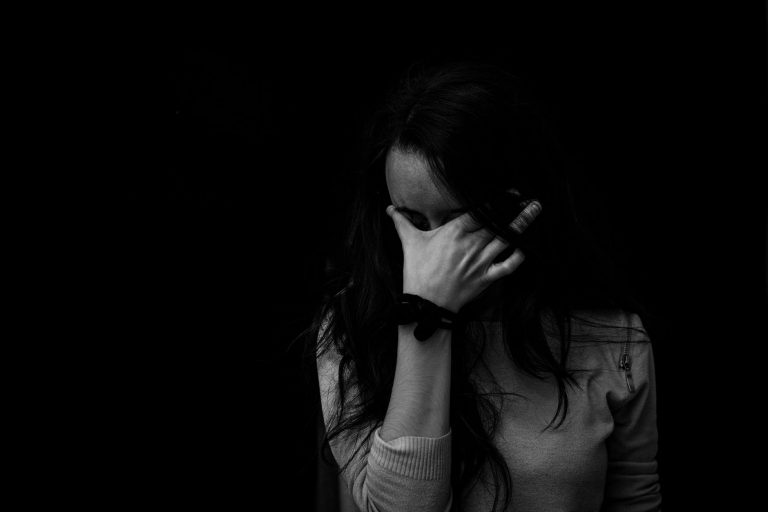
The average adult has seen their stress and anxiety levels rise by almost 50 per cent in recent weeks – with those aged over 60 seeing the biggest increase.
A study of 2,000 adults found that before the lockdown, an average of 59 minutes a day was spent feeling under pressure or worried about things such as work, finances or health.
This has now risen to an hour and 28 minutes per day since the pandemic took hold as fears about money, job security, the economy and health grow.
But the study, by wellbeing brand Healthspan, found that while 20-somethings now feel anxious for an hour and 45 minutes each day – an increase of 23 minutes – the over 60s have seen this figure almost double.
Previously, they spent just 37 minutes a day worrying, but this has now risen to an hour and seven minutes.
Fifty-somethings have also gone from feeling anxious for 57 minutes a day to more than an hour-and-a-half now.
It also emerged one in five adults – including 16 per cent of those over 60 – believe they are experiencing anxiety for the first time ever as they adjust to a new normal.
Worryingly, more than two thirds who are experiencing anxiety said this was manifesting itself in physical symptoms.
Dr Meg Arroll, a chartered psychologist working with Healthspan, said: “For a long time, young people have been thought to be most likely to suffer from an increase in stress and anxiety as they find their way in the world, or juggle young families and work.
“But while they are still spending a large part of their day feeling anxious, those over 60 have seen the biggest jump in the time they spend suffering from stress and anxiety in recent weeks.
“There is a real worry about people’s mental health as they adapt to a new normal – particularly for older people who may see more changes than most in the way they live their lives in the coming months, leading to feelings of isolation, vulnerability and helplessness.”
The study also found 47 per cent of adults admitted they have times where they feel constantly worried or anxious.
Financial worries are the biggest cause of stress, followed by health issues, a lack of sleep and weight gain.
A loved one’s health issues and safety, work and the economy are also among the most common concerns.
Three quarters of those polled have even lost sleep due to their anxiety – an average of four hours a week.
Others have experienced physical symptoms as a result of their stress, including headaches or migraines (40 per cent), stomach discomfort (38 per cent) and palpitations (32 per cent).
A loss of appetite (22 per cent), a dwindling libido (16 per cent) and even dizziness (14 per cent) are also among the symptoms suffered when feeling stressed or anxious.
Sufferers have also made a mistake at work (17 per cent), cancelled a night out (16 per cent) or rowed with a friend or family member (14 per cent).
But almost four in 10 admitted to turning to food and comfort eating when they feel under pressure.
And more than one in 10 have called in sick to work, 23 per cent have argued with a partner and one in twenty have even seen it end a relationship.
Dr Sarah Brewer, author ‘CBD: The Essential Guide to Health and Wellness’, said: “Many people are trying to find natural ways to relieve stress with products like CBD (cannabidiol) working really well to help reduce anxiety.
“With people struggling to sleep we are also seeing a growth in self-care products such as Healthspan’s Magnesium Bath Flakes and sleep aids such as Valerian and 5HTP.”
It also emerged half of those polled, via OnePoll, feel they are more prone to anxiety as they get older.
And unsurprisingly, 34 per cent are feeling more stressed about their health at the moment.
Coronavirus is the top health concern currently for 28 per cent, along with mental health (15 per cent), weight (14 per cent) and fitness levels (9 per cent).
More than half are also feeling anxious about things ‘returning to normal’ after the lockdown.
Dr Meg Arroll added: “It’s no surprise that the top three reasons for heightened levels of stress cited in this survey are financial concerns, health anxieties and a preoccupation with not getting enough sleep as these worries are often intertwined.
“Therefore, breaking these negative thought cycles is important not only for mental health, but for overall physical health and functioning also.
“With so much going on at the moment, it can feel like all we do is worry.
“This type of negative identity can be damaging over time as we ignore the other positive coping traits we have.
“To combat this there are exercises here that can help to build a more positive self-identity, which in turn will help you turn the volume down on anxiety.
“This is a great way to also engage in some self-kindness during Mental health Awareness Week.”
Top 20 causes of stress and anxiety
1. Financial worries
2. Health issues
3. Not getting enough sleep
4. Putting on weight
5. A family member’s health issues
6. Family safety
7. Work
8. The economy
9. Being late
10. Running out of time for something
11. Being in debt
12. Missing out on life experiences
13. Your diet
14. Relationships
15. A heavy workload
16. Dental problems
17. Remembering everything you need to do
18. Your appearance
19. Computer/ tech problems
20. An argument with your partner
Dr Meg Arroll’s Practical tips for tackling stressors:
• Prioritise your to-dos: A massive list can feel overwhelming, so we often do the jobs that aren’t really all that important simply to tick something off the list.
While this can feel nice for a fleeting moment, it can increase stress levels as the tasks we have to get done are still there, usually when we’re feeling drained and tired at the end of the day.
So split your list – first write down all of your to-dos, then rank these in terms of priorities and finally give yourself a slimmed down version of ‘must-dos’ for each day and deal with this first.
As this year’s theme during Mental Health Awareness Week is kindness, make sure one of these must-dos is a self-care to show yourself some much-needed thoughtfulness in trying times.
• Make your own Wheel of Decision: when we’re stressed, indecisiveness creeps in and we can turn into deer in headlights.
On a piece of card or paper, draw a large outer circle and smaller inner circle. Divide the outer circle into four quadrants. Then, in the small circle write “I will…”, while in the quadrants add “Tackle this right away”. “Just breathe deeply”, “Let it go forever” and “Put this aside for now”.
Next time you’re struggling to make a decision, pop a pencil in the middle and spin.
Whichever space the pen tip lands on is how you’re going to deal with the issue or stressor.
And if the Wheel’s decision feels uncomfortable, this exercise enables you to quickly find an alternate decision that you can commit to.
Dr Meg Arroll’s psychological tips for tackling anxiety
To tackle stress and anxiety it can be helpful to distinguish between the two – stress is a response to a known ‘stressor’, right now that may be trying to manage working from home when the kids are also in the house, whereas anxiety is more about ruminating over the past or worrying about the future, for instance long-term financial security.
This distinction can help to figure out our circle of influence, i.e. what we can control in life, as generally we have more practical control over stressors than anxiety triggers but for anxiety, it’s more helpful to focus on our inner narrative to reduce the unpleasant consequences of negative thought patterns.
• Find an empty jar and label it “This Is Me”. Take 10-20 small pieces of paper and write down one of your positive characteristics such as “I’m strong”, “I’m compassionate”, etc. on each.
Fold all these bits of paper and pop them into the jar, then next time you start to feel like all you do is worry, pull out a trait.
Remind yourself of specific times you were strong or compassionate, for example, and how you can use this characteristic again in the future.
• For deeper anxieties, it can be helpful to rewire your mind to reassure itself, rather than catastrophize.
Research shows that writing down our fears helps us to process them, but it’s important also to remind ourselves that we will be okay.
So, in one column write down your three main concerns (i.e. those ones that keep you awake at night) and then in a column to the right, put the heading ‘ways this will be alright’.
It can be hard to find that comforting voice inside so if you’re struggling, think of the person (this could be someone you know, a character in a favourite story or even an actor) who makes you feel safe and think about what they would say and write this down.
Over time, your mind will automatically seek-out the internal reassurance and these anxieties will lose their power.
ENDS





















